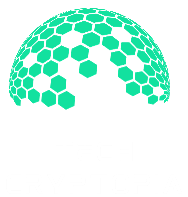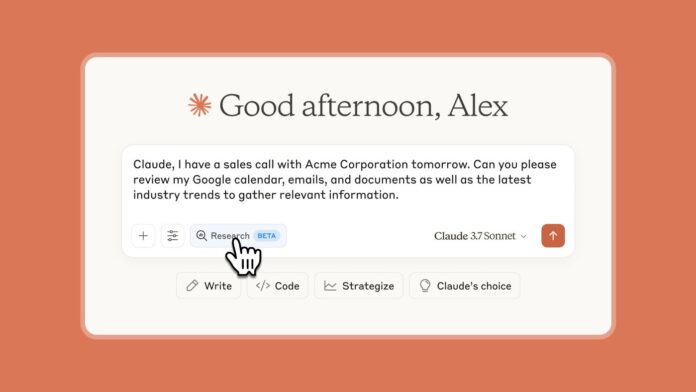
Anthropic has introduced a new Research function in its Claude artificial intelligence model, enabling the system to autonomously perform multi-step investigations. Claude can deliver a well-reasoned response with verifiable citations in just minutes, aiming to strike a “balance of speed and quality.”
The AI startup says Claude responds to prompts “agentically,” independently working out what information it needs to grab next to build the correct response. It “explores different angles of your question automatically and works through open questions systematically,” Anthropic said in its press release.
The Research feature is currently in early beta and can be accessed by users on Claude’s Max, Team, or Enterprise plans in the US, Japan, and Brazil. It is available directly within the Claude interface once activated in account settings.
Anthropic’s news follows similar announcements this year from OpenAI, Google, and Microsoft, which are also adding autonomous research capabilities to their proprietary chatbots. Of note: Anthropic published a study this month showing that its Claude model and DeepSeek’s R1 can sometimes fabricate explanations of their internal reasoning processes.
SEE: Anthropic Looks Into How Its AI Claude ‘Thinks’
Claude’s new Google integrations
Alongside the Research launch, Anthropic also unveiled two new Google integrations for Claude: The AI can now connect to a user’s Gmail and Google Calendar to provide more useful, context-aware responses. These additions build on Google Docs integration that was first unveiled in November.
According to Anthropic, once Google Workspace access is enabled, Claude can surface meeting notes or action items hidden in emails and calendar events. This eliminates the need for users to manually upload files before engaging the chatbot.
SEE: Claude 3.5 Sonnet Can Control Your Computer
The integrations can even be used in line with the Research capability. For instance, it could alert a parent if a commitment in their calendar will clash with an event listed on their child’s school website or if poor weather is expected. Like with Research, Claude provides citations when using the Google Workspace integration, clearly showing exactly where it sourced the information used in its response.
Google Workspace integrations are currently only available to paid Anthropic users in a beta form through their profile settings. If on a Team or Enterprise plan, administrators must first enable Google Workspace access domain-wide before individual users can connect their accounts.
Retrieval augmented generation with file search
Anthropic is also rolling out a Google Docs cataloguing feature for enterprise administrators that uses retrieval augmented generation techniques. This essentially allows it to search across an entire document ecosystem to find relevant information, without requiring users to specify exact file locations.
So even if the information desired is buried deep in a long or long-forgotten document, or only becomes apparent through a pattern spread across multiple files, Claude will still be able to retrieve it. Anthropic says it uses “enterprise-grade security” to protect the organisational data it dips into.
Claude is not the first AI chatbot to receive a Google Workspace integration, as Gemini and ChatGPT also offer them, while Microsoft’s Copilot can also access Microsoft 365 apps like Word, Excel, and Outlook. Despite trailing ChatGPT in total user numbers, Anthropic is positioning Claude as a competitive enterprise tool by expanding its feature set and integration capabilities.

